Filter by
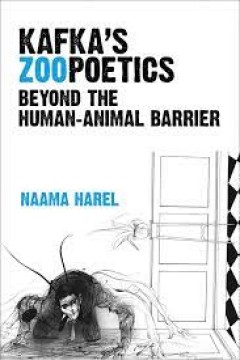
Kafka's Zoopoetics : Beyond the Human-Animal Barrier
Kafka's Zoopoetics is the first extensive account of animals and human-animal relations in the work of Franz Kafka. The book appeals to a broad audience, including scholars and students of Comparative Literature, German Studies, Cultural Studies, and Human-Animal Studies. Kafka’s pivotal role in world literature cannot be overestimated. Exploring the multidimensional relations between humans …
- Edition
- -
- ISBN/ISSN
- 9780472131792
- Collation
- 216 halaman
- Series Title
- -
- Call Number
- 800 HAR k
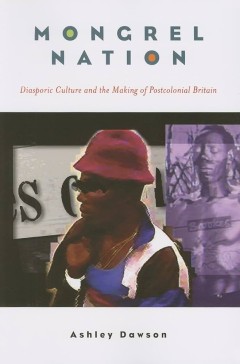
Mongrel Nation : Diasporic Culture and the Making of Postcolonial Britain
Mongrel Nation surveys the history of the United Kingdom's African, Asian, and Caribbean populations from 1948 to the present, working at the juncture of cultural studies, literary criticism, and postcolonial theory. Ashley Dawson argues that during the past fifty years Asian and black intellectuals from Sam Selvon to Zadie Smith have continually challenged the United Kingdom's exclusionary def…
- Edition
- -
- ISBN/ISSN
- 9780472099917
- Collation
- -
- Series Title
- -
- Call Number
- 900 DAW m
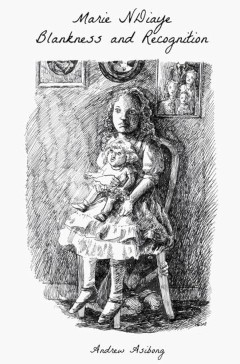
Marie NDiaye : Blankness and Recognition
This is the first critical study in English to focus exclusively on the work of Marie NDiaye, born in central France in 1967, winner of the Prix Femina (2001), the Prix Goncourt (2009), shortlisted for the Man Booker International Prize (2013), and widely considered to be one of the most important French authors of her generation. Andrew Asibong argues that at the heart of NDiaye's world lurks …
- Edition
- -
- ISBN/ISSN
- 9781846319464
- Collation
- -
- Series Title
- -
- Call Number
- 800 ASI m
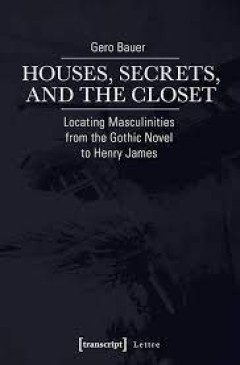
Houses, Secrets, and the Closet : Locating Masculinities from the Gothic Nove…
»Houses, Secrets, and the Closet« investigates the literary production of masculinities and their relation to secrets and sexualities in 18th and 19th century fiction. It focusses on close readings of Gothic fiction, Sensation Novels, and tales by Horace Walpole, Ann Radcliffe, William Godwin, Mary Elizabeth Braddon, Wilkie Collins, and Henry James. The study approaches these texts throug…
- Edition
- -
- ISBN/ISSN
- 9783837634686
- Collation
- 234 halaman
- Series Title
- Lettre
- Call Number
- 800 BAU h
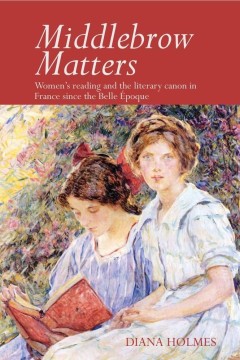
Middlebrow Matters : Women's reading and the literary canon in France since t…
Middlebrow is a derogatory word that connotes blandness, mediocrity and a failed aspiration to ‘high' culture. However, when appropriated as a positive term to denote that wide swathe of literature between the challenging experimentalism of the high and the formulaic drive of the popular, it enables a rethinking of the literary canon from the point of view of what most readers actually re…
- Edition
- -
- ISBN/ISSN
- 9781786941565
- Collation
- -
- Series Title
- Contemporary French and Francophone Cultures
- Call Number
- 800 HOL m

Kafka and Wittgenstein : The Case for an Analytic Modernism
In Kafka and Wittgenstein, Rebecca Schuman undertakes the first ever book-length scholarly examination of Ludwig Wittgenstein’s philosophy of language alongside Franz Kafka’s prose fiction. In groundbreaking readings, she argues that although many readers of Kafka are searching for what his texts mean, in this search we are sorely mistaken. Instead, the problems and illusions we portend to …
- Edition
- -
- ISBN/ISSN
- 9780810131507
- Collation
- 272 halaman
- Series Title
- -
- Call Number
- 800 SCH k
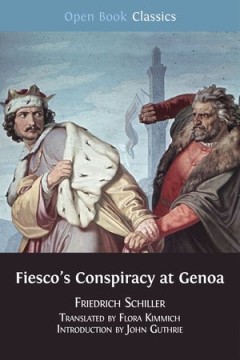
Fiesco's Conspiracy at Genoa
Within two years of the success of his first play Die Räuber on the German stage in 1781, Schiller wrote a drama based on a rebellion in sixteenth century Italy, its title: The Conspiracy of Fiesco at Genoa. A Republican Tragedy. At the head of the conspiracy stood Gian Luigi de’ Fieschi (1524–1547), Schiller’s Count Fiesco, a clever, courageous and charismatic figure, an epicurean and u…
- Edition
- -
- ISBN/ISSN
- 9781783740444
- Collation
- 150 halaman
- Series Title
- Open Book Classics Volume: 2
- Call Number
- 800 SCH f
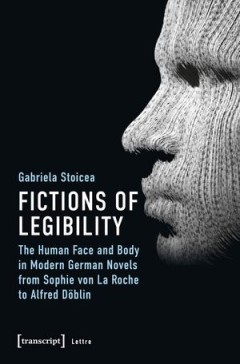
Fictions of Legibility : The Human Face and Body in Modern German Novels from…
Gabriela Stoicea examines how the incidence and role of physical descriptions in German novels changed between 1771 and 1929 in response to developments in the study of the human face and body. As well as engaging the tools and methods of literary analysis, the study uses a cultural studies approach to offer a constellation of ideas and polemics surrounding the readability of the human body. By…
- Edition
- -
- ISBN/ISSN
- 9783839447208
- Collation
- 200 halaman
- Series Title
- -
- Call Number
- 800 STO f
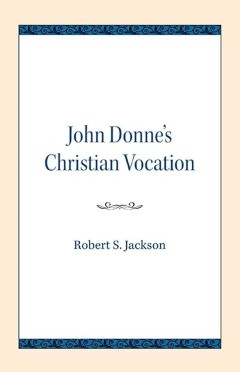
John Donne's Christian Vocation
John Donne’s poetry is often difficult and perplexing, even more so because it undergoes a shift away from secular topics after he converts and begins to lead a religious life. Robert S. Jackson’s John Donne’s Christian Vocation is one of the first studies that takes seriously the ways that Donne’s Christian vocation permeates all of Donne’s writings, not just those after his conversi…
- Edition
- -
- ISBN/ISSN
- 9780810138476
- Collation
- 200 halaman
- Series Title
- -
- Call Number
- 800 JAC j
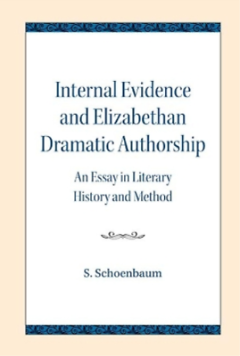
Internal Evidence and Elizabethan Dramatic Authorship : An Essay in Literary …
Internal Evidence and Elizabethan Dramatic Authorship provides one the earliest attempts to write a theoretical method for evidence within plays to help determine authorship or to help distinguish the work of one author from another. Samuel Schoenbaum’s study remains valuable, for the attempt to attribute unattributed plays to one or another author remains an ongoing conversation within early…
- Edition
- -
- ISBN/ISSN
- 9780810138674
- Collation
- 304 halaman
- Series Title
- -
- Call Number
- 800 SCH i
 Computer Science, Information & General Works
Computer Science, Information & General Works  Philosophy & Psychology
Philosophy & Psychology  Religion
Religion  Social Sciences
Social Sciences  Language
Language  Pure Science
Pure Science  Applied Sciences
Applied Sciences  Art & Recreation
Art & Recreation  Literature
Literature  History & Geography
History & Geography